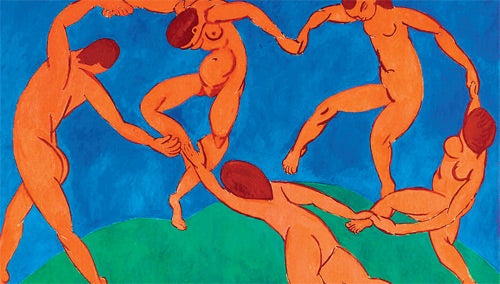Royal Academy show in doubt as Russia withdraws artworks

Your support helps us to tell the story
From reproductive rights to climate change to Big Tech, The Independent is on the ground when the story is developing. Whether it's investigating the financials of Elon Musk's pro-Trump PAC or producing our latest documentary, 'The A Word', which shines a light on the American women fighting for reproductive rights, we know how important it is to parse out the facts from the messaging.
At such a critical moment in US history, we need reporters on the ground. Your donation allows us to keep sending journalists to speak to both sides of the story.
The Independent is trusted by Americans across the entire political spectrum. And unlike many other quality news outlets, we choose not to lock Americans out of our reporting and analysis with paywalls. We believe quality journalism should be available to everyone, paid for by those who can afford it.
Your support makes all the difference.A forthcoming exhibition at the Royal Academy in London, of major artworks from Russia's most prestigious museums, is under threat after Russian authorities withdrew its loan of several pieces. They have voiced fears that the paintings could be seized in legal battles over their rightful ownership.
The Royal Academy of Arts is due to open its 13-week show, From Russia: French and Russian Master Paintings 1870-1925, next month, displaying together for the first time in the UK more than 120 works such as The Dance, by Henri Matisse in 1910, and Maternity (Women on the Seashore), by Paul Gauguin, in 1898. Other paintings include works by Renoir, Cezanne, Van Gogh, Picasso and Kandinsky.
But the Russian Federal Agency for Culture and Cinematography has not issued the museums with export licences to allow the paintings to come to London, saying British law does not protect artworks from being seized by law suits or court decisions. A decision was due today, an official said.
Some of the works were seized from private collections after the 1917 revolution, leaving the question of their ownership open to legal challenges. They have been drawn from world-renown institutions including the Pushkin Fine Arts Museum in Moscow and the State Hermitage Museum and the State Russian Museum in St Petersburg for the travelling exhibition, which is currently in Dusseldorf, Germany.
Vladimir Putin and Gordon Brown are due to attend the London opening which, despite the dispute, the Royal Academy is expecting it to go ahead as planned.
"The Royal Academy of Arts has not yet received any official notification regarding the status of the exhibition ... and is seeking clarification with the Russian Ministry of Culture," a spokeswoman said. A Department for Culture, Media and Sport spokesman added: "We have had no notification that the Russian galleries intend to change their plans to loan works. The Government has done everything possible to facilitate the exhibition going ahead, including full assurances that the works would be protected from seizure.
"The Secretary of State wrote to the head of the Russian Federal Agency for Culture and Cinematography on 7 December to confirm the works of art would be subject to the State Immunity Act 1978. We have also underwritten the collection against loss or damage to the value of nearly 900m."
But the chief of the Russian Federal agency was reported to have dismissed the assurances, saying: "The British legal system is constructed in such a way that even a governmental guarantee will not protect us from legal action."
The former shadow arts minister Hugo Swire, who has worked for the National Gallery, told the BBC it was hard to pin down the root cause of the Russians' non-cooperation but pointed to the impact upon relations of the closure of British Council offices in Russia and fallout from the murder of Alexander Litvinenko. Moscow is refusing to extradite Andrei Lugovoy, whom UK police want in connection with his death last year.
Mr Swire, who put together an exhibition of Russian art in London in the Gorbachev era, said: "I think this is a situation that certainly the Royal Academy were nervous might happen. I had a discussion with the then director about this very situation, and the Government I don't think have been very quick to come forward to address the potential of something like this happening."
Join our commenting forum
Join thought-provoking conversations, follow other Independent readers and see their replies
Comments